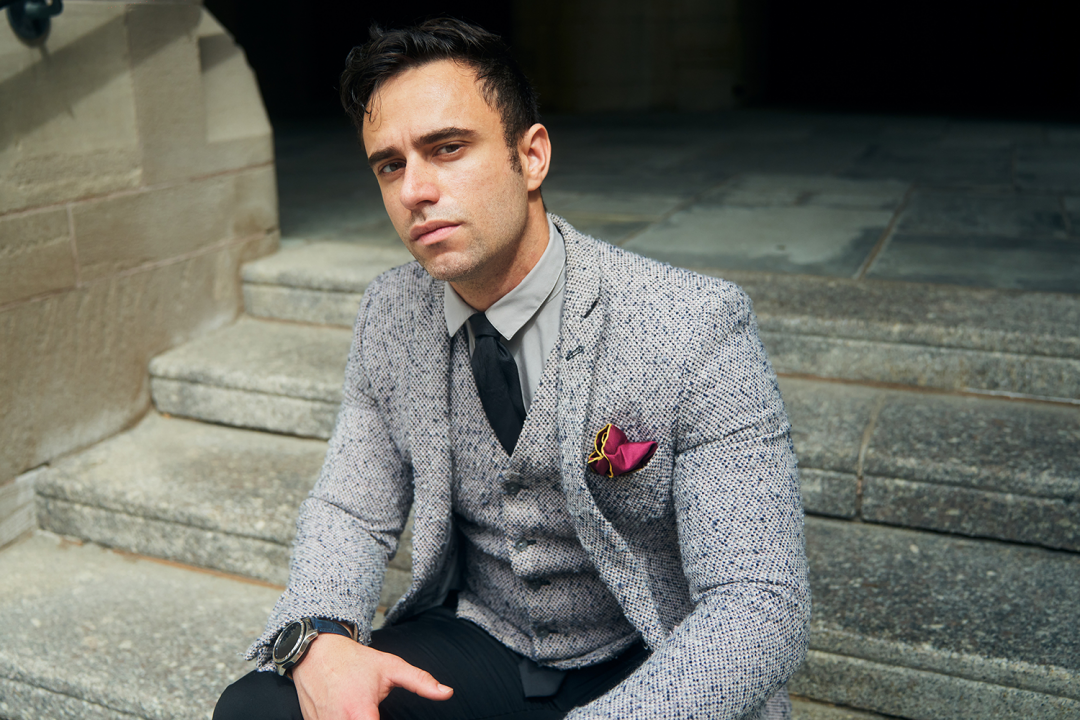
In the 16 years since she was first diagnosed with breast cancer, RuthAnn Lobo has come to appreciate the delicate bond between medical treatment and delivery.
At a recent luncheon at the Alumni Center, Lobo praised the nurses, radiologists, and other professionals in their “pastel scrubs and flower tops,” who wield the tools of their trade with tenderness and grace, recognizing that treatment and healing is as much an emotional and mental journey for patients as a physical one.
“There is goodness in this world and you are a huge part of it,” Lobo told a noontime gathering of administrators, faculty, and alumni in the fields of nursing and allied health. “Your names are not broadcast on local television nor are your good deeds written about in the papers, yet they are etched indelibly on the hearts of those that you touch.”
Lobo said she will be forever grateful for the wonderful treatment she received and feels that everyone should be able to receive such quality care. It is with that purpose that Lobo and her daughter, Rebecca Lobo Rushin, CLAS ’95, a former UConn basketball star who is now an ESPN sports analyst and University Trustee, established the RuthAnn and Rebecca Lobo Leadership Scholarship for minority students pursuing careers in allied health and nursing.
The Nov. 9 luncheon was held to highlight the Lobo scholarship, which was created in 2001 to help reduce cultural disparities in healthcare and improve diversity in the healthcare workforce. The Lobos hope to raise $100,000 to support the scholarship fund as part of the University’s ongoing $600 million Capital Campaign.
“I’m grateful for the health care I’ve experienced over the past 16 years,” RuthAnn Lobo said during her keynote address. “It’s what is needed by all patients, including the underserved, whose traditions, values, language, and culture often prevent them from receiving timely and important care.
“I believe it is our moral obligation to provide healthcare professionals who understand those traditions, values, language, and culture in order that the underserved enjoy the same excellent medical care and – more importantly – the hope that I have been counting on since 1993.”
Other than skin cancer, breast cancer remains the most common cancer among women in the United States. Race is not considered a factor that might increase a woman’s chance of getting breast cancer. However, the rates of developing and dying from the disease differ among ethnic groups.
Even though white women have a higher rate of developing breast cancer than any other racial or ethnic group, African American women are more likely to die from it, according to the American Cancer Society. Studies have found that African American women often have progressive tumors associated with poorer prognosis. Some ethnic and racial groups have been less likely to receive breast cancer screening, and thus their breast cancers are often diagnosed at later stages, according to Susan G. Komen for the Cure®, the world’s largest grassroots network of breast cancer survivors and activists. This later stage diagnosis increases the chance of dying from breast cancer.
Denis Coble, an associate professor of allied health and a prostate cancer survivor, also spoke at the luncheon. Coble said he and his students regularly participate in community outreach efforts and health fairs as part of their research and commitment to raising cancer awareness among underserved populations. For women age 40 and above, Coble said, having an annual mammogram, conducting breast self-exams, and having an annual physical are the most important screening tests for breast cancer.

“Those three things go a long way toward catching cancer early,” said Coble. When breast cancer is detected early, the five-year survival rate is 98 percent, according to the National Breast Cancer Foundation Inc.
This year’s Lobo scholarship recipient is Nisha Wali, a sophomore in the School of Nursing. Wali received a scholarship of $2,100. She thanked the Lobos and the University for supporting her dream of becoming a registered nurse.
“Mrs. Lobo, Ms. Lobo, your scholarship means the world to me,” Wali said during the luncheon. “The financial support is wonderful. The emotional support is stupendous. It means that you and the UConn School of Nursing believe I can be a great nurse, too. And that has made a huge difference to me.”
Wali is just the kind of nursing student the School of Nursing is trying to attract, said dean of nursing Anne Bavier. Connecticut has been especially hard hit by the current nursing shortage, Bavier said, and is second only to Alaska in having the lowest number of registered nurses in a state. Training more nurses, particularly nurses from diverse backgrounds, is an integral part of the school’s mission.
“We have a need to be more diverse in what we do, so that nursing profiles reflect the populations of those we serve,” Bavier said. “We are very sensitive to increasing the diversity in our student population and in our faculty.”
Bavier said the University was “extraordinarily honored” to have the Lobos as part of the UConn family.
Professor Lawrence Silbart, head of UConn’s Department of Allied Health Sciences in the College of Agriculture and Natural Resources, noted that his field is also struggling with a shortage of qualified workers. About 60 percent of the jobs in health care are in one of 215 allied health sub-specialties, which include radiology, geriatrics, physical and occupational therapy, speech pathology, dieticians and nutritionists, and medical/dental and physician assistants, Silbart said. Such jobs are expected to grow by 30 percent, with a projected shortfall of between 1.5 million to 3 million workers by 2020, so the need for a stronger and more diverse allied health workforce is very great, said Silbart. He praised the Lobos for their commitment to increasing diversity in healthcare through the scholarship.

“It is critically important to recognize that one of the barriers to effective health care delivery is cultural, and that our student population should reflect the cultural diversity of the people they care for,” Silbart said. “We are deeply grateful to the Lobos for establishing this scholarship.”
The luncheon was sponsored by Rebecca Lobo Rushin, Lynn and Doug Donaldson, MassMutual, the College of Agriculture and Natural Resources Alumni Association, and the UConn School of Nursing Alumni & Friends Society.
To support the RuthAnn and Rebecca Lobo Leadership Scholarship in Allied Health and Nursing, please send contributions payable to the UConn Foundation Inc., RuthAnn and Rebecca Lobo Scholarship Fund; c/o Amy Hanaburgh, Director of Development; 1376 Storrs Rd., Storrs, CT 06269-4066. Or go to the UConn Foundation’s secure website.


